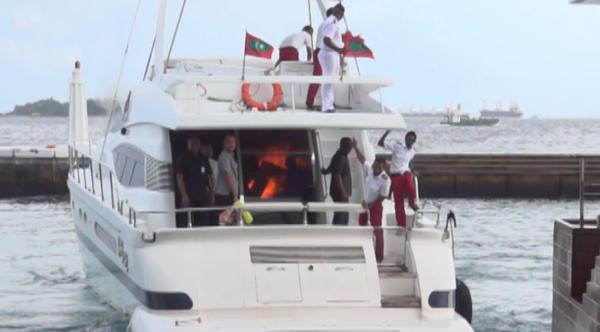Court hears evidence against Adeeb in boat blast trial
The criminal court heard Thursday evidence against detained former Vice President Ahmed Adeeb over a terrorism charge relating to an alleged assassination plot on President Abdulla Yameen.

04 Jun 2016, 09:00
The criminal court heard Thursday evidence against detained former Vice President Ahmed Adeeb over a terrorism charge relating to an alleged assassination plot on President Abdulla Yameen.
A soldier claimed he prepared two improvised explosive devices on Adeeb’s orders prior to the blast on Yameen’s speedboat, Finifenmaa, on September 28.
The president escaped unharmed, but the first lady and two aides sustained minor injuries.
Adeeb was arrested and impeached shortly afterwards, prompting a short-lived state of emergency and a purge of the security forces and the cabinet.
Become a member
Get full access to our archive and personalise your experience.
Already a member?
Discussion
No comments yet. Be the first to share your thoughts!
No comments yet. Be the first to join the conversation!
Join the Conversation
Sign in to share your thoughts under an alias and take part in the discussion. Independent journalism thrives on open, respectful debate — your voice matters.




